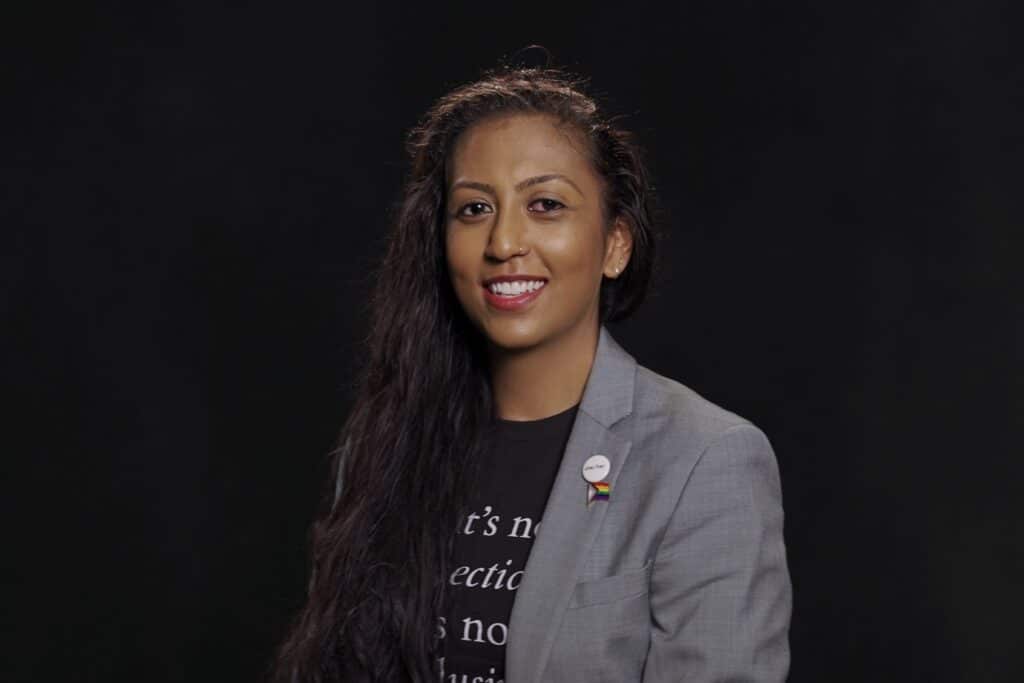Sheetal Deo is passionate about intersectionality and the need to unpack “the buzzword” it’s become.
“It’s really important when we look at social issues, we look at the person who’s perhaps sitting at the most marginalised intersection,” Deo says.
“When we create a system or a structure or a policy, practice or procedure that elevates the people who are sitting in those marginalised groups, it elevates absolutely everyone.”
A first generation Canadian who migrated to Australia, Deo is the principal and founder of Shakti Legal Solutions and the senior project manager at the Rise Project with the Diversity Council of Australia.
Deo is a woman of colour, part of the LGBTQI+ community, a first generation Canadian who migrated to Australia, and she speaks different languages. It’s this lived experience which gives her a unique understanding of intersectionality.
“A lot of times when people think of intersectionality, they think of intersecting identities or complex individuals with intersecting identities. That’s not quite it,” she explains.
“When Kimberly Crenshaw coined the term in the 1980s, she was referring to the complexity an individual feels who sits at the intersection of multiple identities,” Deo says, noting that intersectionality actually arose from anti-discrimination laws.
“There were a few cases, around discrimination, and one of them related to black women not being hired into senior management roles.”
The organisation in question claimed that there were black men in senior management roles as well as a white woman, so they couldn’t be blamed for discriminating against black people or women.
“There’s a unique intersection of gender and race that looking at just black men wasn’t quite solving, looking at white women wasn’t quite solving,” Deo says.
“You had to look at the experiences of black women. And that’s looking at the intersectional framework that’s looking through an intersectional lens to see how those particular identities intersect and what causes, what social inequities, what oppression, what privileges form as a result of those intersecting identities.”
This is why “it’s not just complex identities overlapping,” says Deo, noting that some of the misconceptions surrounding intersectionality come from the identity politics side of things.
Intersectionality, she says, is “looking at how those identities intersect and the power dynamics and the marginalisation that occur are those intersections”.
Another misconception is that intersectionality is simply a feminist theory. The term intersectional feminism is what most people might think of when they hear intersectionality.
“Well, that’s not quite right, because there’s not only the gender lens of intersectionality, there could be gender and race. So we have gendered racism. There could be ableism, there could be classism. So, when we look at intersectionality– when we adopt an intersectional lens– we can actually use that framework or viewpoint to address any intersection of any diversity dimension,” Deo says. “It’s not just for feminism.”
“So again, it’s not a hot button word.”
“It’s actually a lens through which we can understand what that person is experiencing and how we can advocate that.”
And while the realities of terms like privilege and oppression can be quite uncomfortable to talk about, Deo says we have a responsibility to understand how the socially constructed identities of ourselves and other people affect society.
“The reality is that these aren’t anyone’s fault. We didn’t ask for the privileges that we have as much as we didn’t ask for the marginalisation or oppression we feel,” she says.
“I asked for this colour of skin just as much as you ask for the colour of yours. So it’s not our fault.”
But we do have a responsibility to understand what these identities– socially constructed and imposed upon us– mean for us, and how that affects how we operate in the society and the ecosystem around us.”
“If it’s not intersectional, it’s not inclusive. And if it’s not inclusive, it’s not equitable. And at the end of the day, we’re trying to create a more equitable world.”
Deo shares more on the intersectionality and its application in today’s social landscape during her keynote session for Women’s Agenda’s new video app series, The Keynotes.
The Keynotes app shares “Mini Keynote” sessions and insights on leadership, equity, current affairs, climate and so much more. To watch Sheetal Deo’s keynote as well as other sessions, sign up to the app here.


